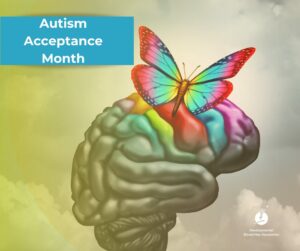While a scorching heat dome like the one BC experienced in 2021 isn’t in the forecast, this week the mercury is expected to climb to summertime levels which means it could go over 30 degrees in some areas.
With heat in mind, it’s important to remember that people with developmental disabilities can experience difficulties regulating their body heat due to various factors. It’s also a reminder that we need to check on friends and loved ones who may struggle in the heat.
Some of the reasons people with developmental disabilities may not be able to regulate their body heat.
- Sensory processing issues: Many people with developmental disabilities, such as autism spectrum disorders, have sensory processing differences. This means they may have difficulty processing and responding to sensory stimuli, including temperature changes.
- Impaired communication and self-advocacy: People with developmental disabilities may have challenges communicating their needs and discomfort effectively. They might struggle to express when they are too hot or too cold or may not recognize the signs of temperature-related discomfort.
- Limited mobility or physical impairments: Some people with developmental disabilities may have mobility issues that restrict their ability to adjust to their environment or engage in activities that help regulate body temperature. They may have difficulty removing layers of clothing, changing their position, or accessing cooler spaces.
- Underlying medical conditions: Certain developmental disabilities, such as Down syndrome, can be associated with underlying health conditions that affect thermoregulation. People with Down syndrome may have a higher risk of thyroid dysfunction or heart conditions, which can impact the body’s ability to regulate body temperature.
- Medications and side effects: Some medications can impact the body’s thermoregulatory mechanisms, leading to either increased or decreased sensitivity to temperature changes.



